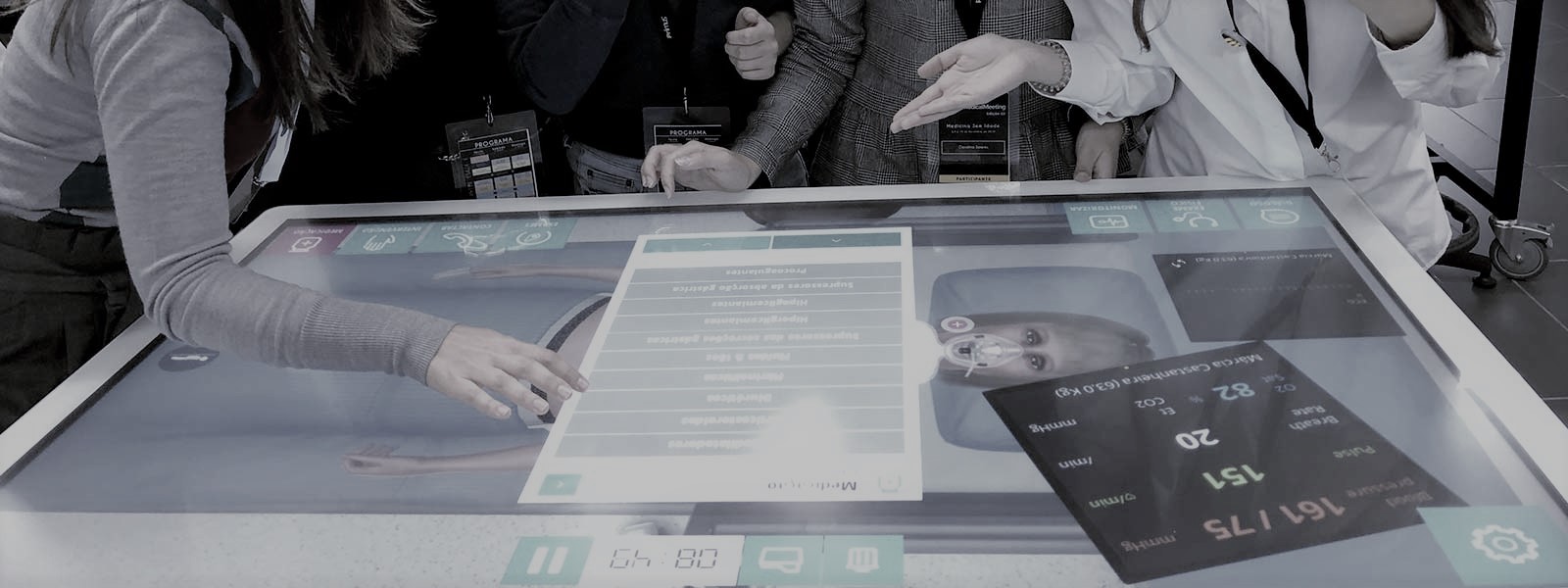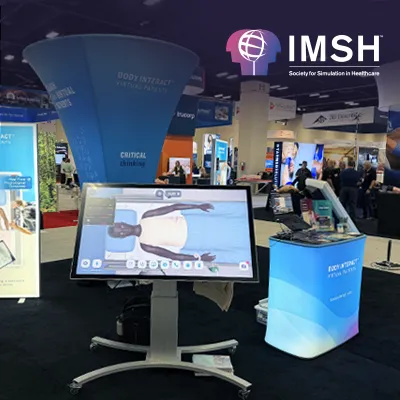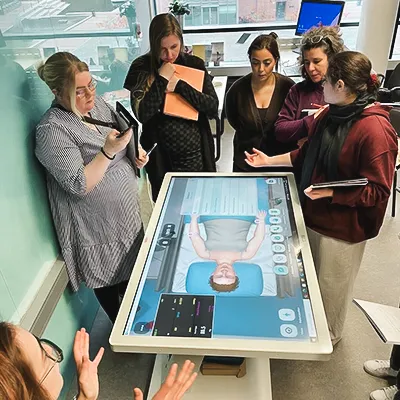Universities are always trying to innovate and provide learners the best learning experience and the closest to real-life situations.
With that in mind, the University of Valle de México in 2004 created its own simulation center, the second in the country.
Six years later, Professor Carlos Aguilar mentioned how much they have learned and how Body Interact, as a virtual patient simulator, is now helping their students and educators.
As a chance to also contribute to the development and improvement of other institutions and educators he shared with the audience the University learning cycle:
- Theoretical concepts (conferences, classroom sessions, etc.)
- Skills development
- Virtual patient experience facilitated by an educator
- Complex simulation experience
- Clinical experience with supervision
With the success of students in mind, the professor also remembered the “importance of individual study as a complement to their model of education”.

Be the one in charge
With the COVID-19 emergency creating significant challenges to the education sector, the University of Valle de México with its large number of campuses nationally, needed to move quickly.
For this reason, in a month the university developed a totally new learning plan with Body Interact to implement a revised delivery strategy for the Universities’ seventeen thousand students to study remotely.
All Body Interact clinical scenarios included in the university license were correlated with the school lectures. And based on the general and specific learning objectives, educators were able to “assign clinical cases and share with their students a practical way to apply their knowledge into practice”, highlighted Professor Carlos.
As a way to extend the learning outside the classroom, educators chose specific clinical cases for students to study and perform as many times as they wish. All of them included scientific references for further readings and extra learning resources such as a video conference from an expert that centered the information of all the lectures of that week.
Additionally, every week students had a real time Q&A session with a national expert on the topic studied.
”We learned a lot from our COVID-19 experience. It gave us the opportunity to include more innovation with virtual patients
Professor Carlos AguilarUniversity of Valle de México

Innovation on the way
With the help of virtual patients, “students can not only develop knowledge and thinking ability”, commented Professor Aguilar. “They can actually develop skills through hearing the monitoring sounds, visual signs such as the virtual patient becoming cyanotic and with the analysis of lab tests and other exams”.
Due to the pandemic situation, students are not able to attend clinical rotations. Therefore as the Mexican educator believes the university “has the responsibility to develop skills in the students”. With the aim of helping all of their students have access to this innovative and digital solution, the University of Valle de México is developing a research project across 900 of its students to understand how they are benefiting from the integration of a virtual patient simulator in their curriculum.








